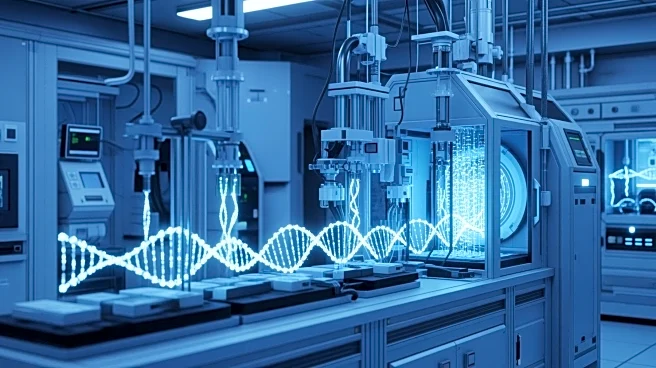What's Happening?
BioSpace reports on the challenges faced by companies like Moderna and BioNTech in producing bespoke mRNA therapies for cancer patients. These therapies require tailoring to individual patients, which
involves complex manufacturing processes. The article highlights the logistical hurdles in collecting and sequencing patient samples, and the need for efficient production schedules to ensure timely delivery of personalized treatments. Moderna's approach involves using AI to streamline these processes, reducing the time from sample collection to vaccine administration. The company aims to deliver individualized therapies within six weeks, a significant improvement from previous timelines.
Why It's Important?
The ability to produce personalized mRNA therapies quickly is crucial for treating cancer patients effectively, especially those with rapidly progressing tumors. The advancements in manufacturing processes can potentially revolutionize cancer treatment, offering tailored solutions that improve patient outcomes. However, the complexity of these processes poses challenges that companies must overcome to bring these therapies to market. Success in this area could lead to significant advancements in personalized medicine, offering hope for more effective cancer treatments and potentially expanding the use of mRNA technology to other diseases.
What's Next?
Moderna and BioNTech are refining their manufacturing processes and exploring where their treatments fit into existing care pathways. Moderna plans to submit for full authorization by 2028, while BioNTech is awaiting data that could lead to regulatory discussions. The companies are assessing the potential for combining individualized therapies with off-the-shelf drugs to enhance treatment efficacy. As they navigate these challenges, the focus remains on optimizing production and ensuring timely delivery of personalized therapies to patients.









